"2024 Digital Learning Forum" Concludes Successfully: Exploring Educational Innovation Driven by Generative AI
Since the emergence of GenAI, its influence has rapidly spread across various industries. Education, being a cornerstone of nurturing future generations, has seen proactive exploration by academia, industry, and research on how to utilize GenAI to establish a more diverse and dynamic digital learning ecosystem for the mutual benefit of educators and students. To this end, National Cheng Kung University (NCKU), National Central University, and National University of Tainan jointly organized the "2024 Digital Learning Forum," aiming to explore the application of GenAI in unlocking the future of digital learning from a technological perspective.
Dr. Yau-Hwang Kuo, the project leader of the "Second Phase Digital Learning Deepening Project" at the Ministry of Education and Vice President of NCKU, in his address, highlighted the significance of leveraging GenAI to propel the paradigm shift in digital learning and fostering the cultivation of a new generation of diverse talents.
Dr. Mu-chun Su, the co-project leader of the "Second Phase Digital Learning Deepening Project" at the Ministry of Education and Dean of the College of Computer Science and Electrical Engineering at National Central University, emphasized the dual nature of AI for the education sector, urging early adaptation to transform challenges into opportunities, thereby making AI a key driving force for educational transformation and the nurturing of a new generation of talents.
President Hui-Ping Chen of National University of Tainan pointed out that despite the university's transition into a comprehensive institution, teacher training remains a top priority. She expressed her expectation that all deans and top executives within the university would engage in AI learning to continuously improve teaching methods and tools for primary and secondary education.
Ms. Yen-chen Lin, Senior Administrator of the Information and Technology Education Bureau of the Ministry of Education, reiterated the positive impact of the Ministry's longstanding promotion of digital learning and distance education on schools. She emphasized the need for schools and teachers to prepare for relevant applications in the face of AI advancements, considering the close relationship between digital learning and technological progress.
AI + Digital Learning: Transforming the Future of Education
With GenAI taking center stage today, its rapid and widespread application is redefining the direction of various industries, and the education sector is no exception. The "2024 Digital Learning Forum," led by technology industry experts, outlined the future integration of AI with education. With over 150 experts, scholars, university, and school teachers and principals participating in the event, the most anticipated agenda featured speeches by Dr. Yong-Hui Lai , Director of the Artificial Intelligence Research Institute at Foxconn Research Institute, and Mr. Kai-Long Hua, Chief Technology Officer of Microsoft Taiwan, two experts from the technology industry who discussed how to drive the diffusion and success of digital learning through GenAI.
Dr. Yong-Hui Lai, Director of the Artificial Intelligence Research Institute at Foxconn Research Institute, delivered a speech titled "Artificial Intelligence + Digital Learning: Strengthening Flipped Education and Exploring New Ethical Territories." He emphasized the transition to the AI 2.0 era, where AI becomes smarter through foundational models containing massive parameters to analyze globally large-scale unlabeled datasets, combined with self-supervised learning methods, enabling AI to perform "analytical" or "generative" tasks.
He summarized the many advantages that AI is expected to bring to the field of education, including personalized learning, accelerated creativity, visual interactive learning, 24/7 learning, supplementing teacher time and capabilities, data-driven feedback, iterative or developmental teaching materials based on data, and task automation. Regarding application scenarios, examples included using GenAI to create illustrated storybooks, providing different learning experiences based on student abilities through MATHia, or assisting students in learning mathematical problem-solving skills and steps through "ChatGPT+WolframAlpha."
However, when applying GenAI to education, there are some derivative issues worth noting. For example, it may produce illusions or biases, necessitating impartial third-party evaluations of large models. Additionally, it is essential to address potential concerns about foreign companies fully mastering Large Language Models (LLM) technology. Therefore, the government and academia should increase investment and research efforts to maintain Taiwan's AI sovereignty.
Taking the baton for the subsequent speech, Mr. Hua Kailong, Chief Technology Officer of Microsoft Taiwan, shared insights on the topic "Unleashing AI: Transforming the Future of Education." He pointed out that current LLMs are becoming multimodal, enabling them to possess more powerful Empower capabilities, helping people accelerate the completion of previously time-consuming tasks. Therefore, looking ahead to the future, GenAI will be introduced into various industries, covering grassroots employees, middle managers, and senior decision-makers comprehensively.
Statistics show that currently, as many as 82% of executives believe that future employees should possess AI capabilities. Therefore, students need to prepare accordingly, underscoring the critical importance of exploring AI education issues at this moment. During the AI introduction phase, he recommended that schools focus on three basic tasks: shaping AI culture within organizations through activities like Prompt-a-thon, establishing a sound and mature data environment, and continuously brainstorming more usage scenarios.
Striving for educational equality, shaping a human-centric learning experience with AI
The highlight of this forum was the panel discussion moderated by Professor and Chief Technology Officer Yang Chen-hua from the Department of Computer Engineering at National Central University, featuring discussions led by Dr. Lai Yong-hui, Mr. Hua Kailong, and himself on how to leverage AI to transform education. The discussion explored how AI can change digital learning, deepen human-centric digital learning experiences, and address issues such as technology ethics, privacy protection, and digital disparities.
Professor Chen-Hua Yang believes that teachers cannot remain outside the wave of GenAI because an increasing proportion of students are using GenAI tools in the process of executing tasks such as coding, essay writing, and report writing. Therefore, he suggested that teachers should cultivate Prompt Engineering skills to use GenAI to generate Rubric standards for evaluating student assignments. Regarding privacy protection, Professor Yang suggested the adoption of paid GenAI tools whenever possible because they are capable of doubling users' mental faculties and capabilities, which far outweigh the cost. For example, Microsoft's Copilot application can automatically schedule meetings, record meeting content, etc., to assist principals or managers in effectively improving decision-making quality and efficiency. He believed that only by paying can users obtain such intelligent assistance. However, Professor Yang also admitted that it is challenging for schools to allocate related budgets and hoped for a win-win situation with the assistance of Microsoft Taiwan.
Mr. Kai-Long Hua pointed out that Microsoft has collaborated with the Ministry of Education and teachers' colleges to generate English education materials using GenAI, aiming to bridge the gap in English education between urban and rural students. Microsoft is fully aware that with the rapid advancement of technology, it may exacerbate issues of educational inequality, so assistance is needed to help rural teachers and students grasp AI more quickly.
Many participants at the forum expressed concerns about ensuring the accuracy of GenAI. Dr. Yong-hui Lai suggested that organizations could consider implementing RAG (Retrieval-Augmented Generation), while individual users would need to invest time and effort in verification. Mr. Kai-Long Hua added that RAG restricts the sources from which GenAI generates answers, such as limiting them to school databases. However, there is still a possibility of referencing incorrect documents, so users must trace the origins of citations and verify them, which is crucial.
Through this forum, not only did it guide teachers in understanding how to deepen the human-centric digital learning experience with AI, but it also addressed issues such as technology ethics, privacy protection, and digital disparities, making it a rich feast of AI educational transformation.
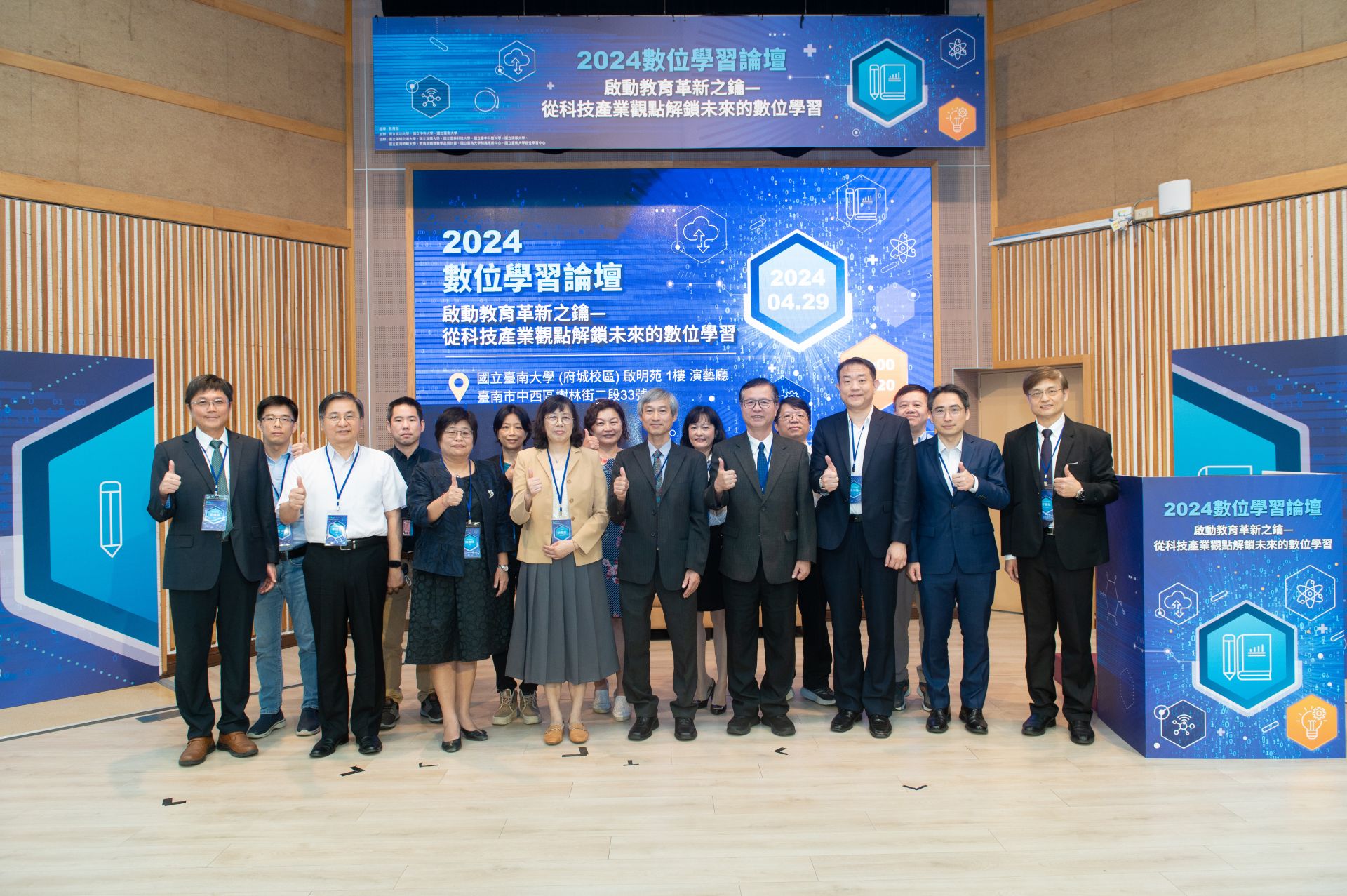
The "2024 Digital Learning Forum," under the guidance of the Information and Technology Education Division of the Ministry of Education, successfully concluded on April 29th at the Fu Cheng Campus of National University of Tainan (Tainan City, Central-Western District).
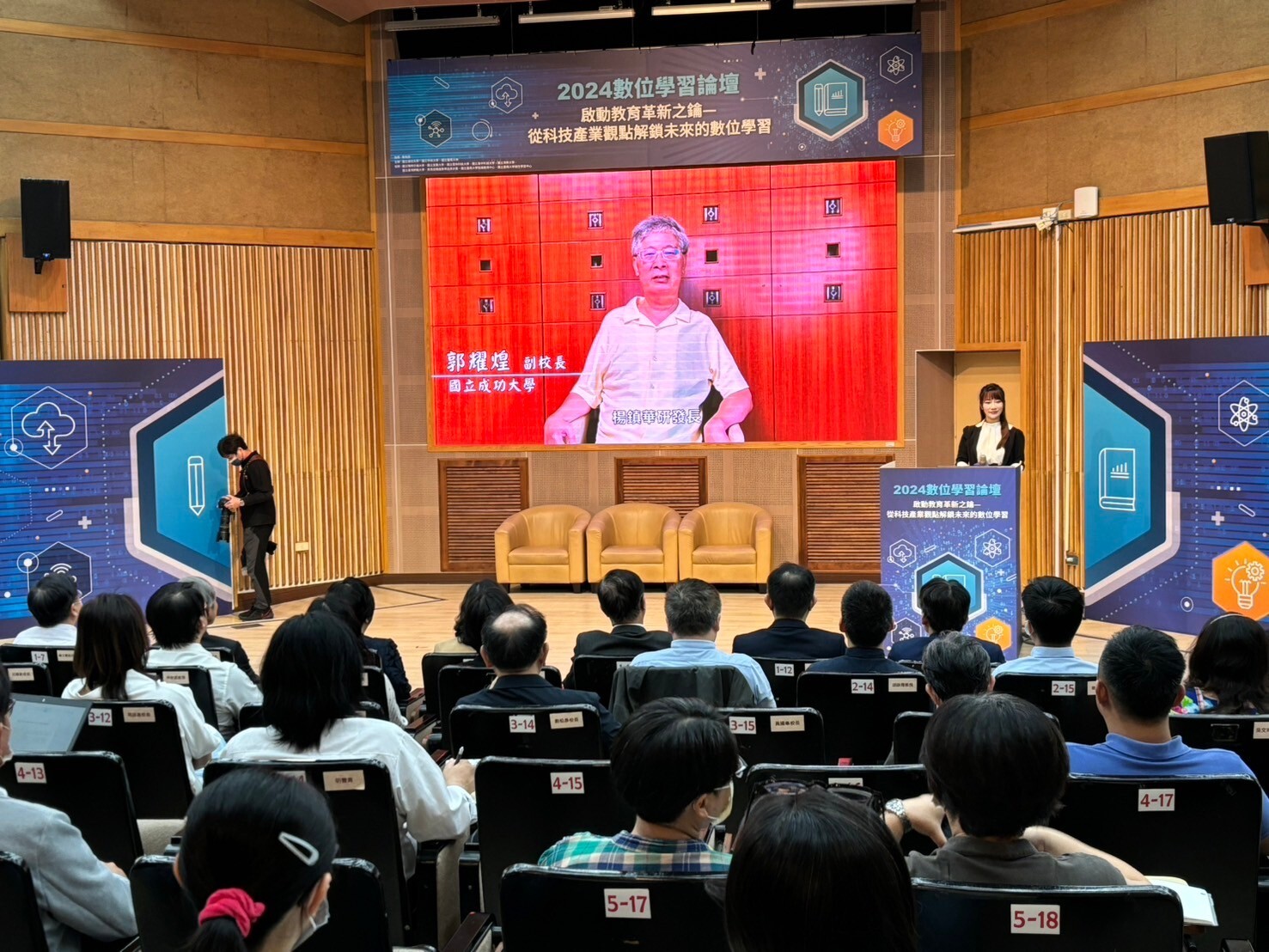
NCKU Vice President Yau-Hwang Kuo serves as the director of the General Project Office for the Ministry of Education's "Second Phase Digital Learning Cultivation Project." He looks forward to this forum where discussions led by experts from the technology industry will explore how to effectively utilize GenAI to drive the paradigm shift in digital learning.
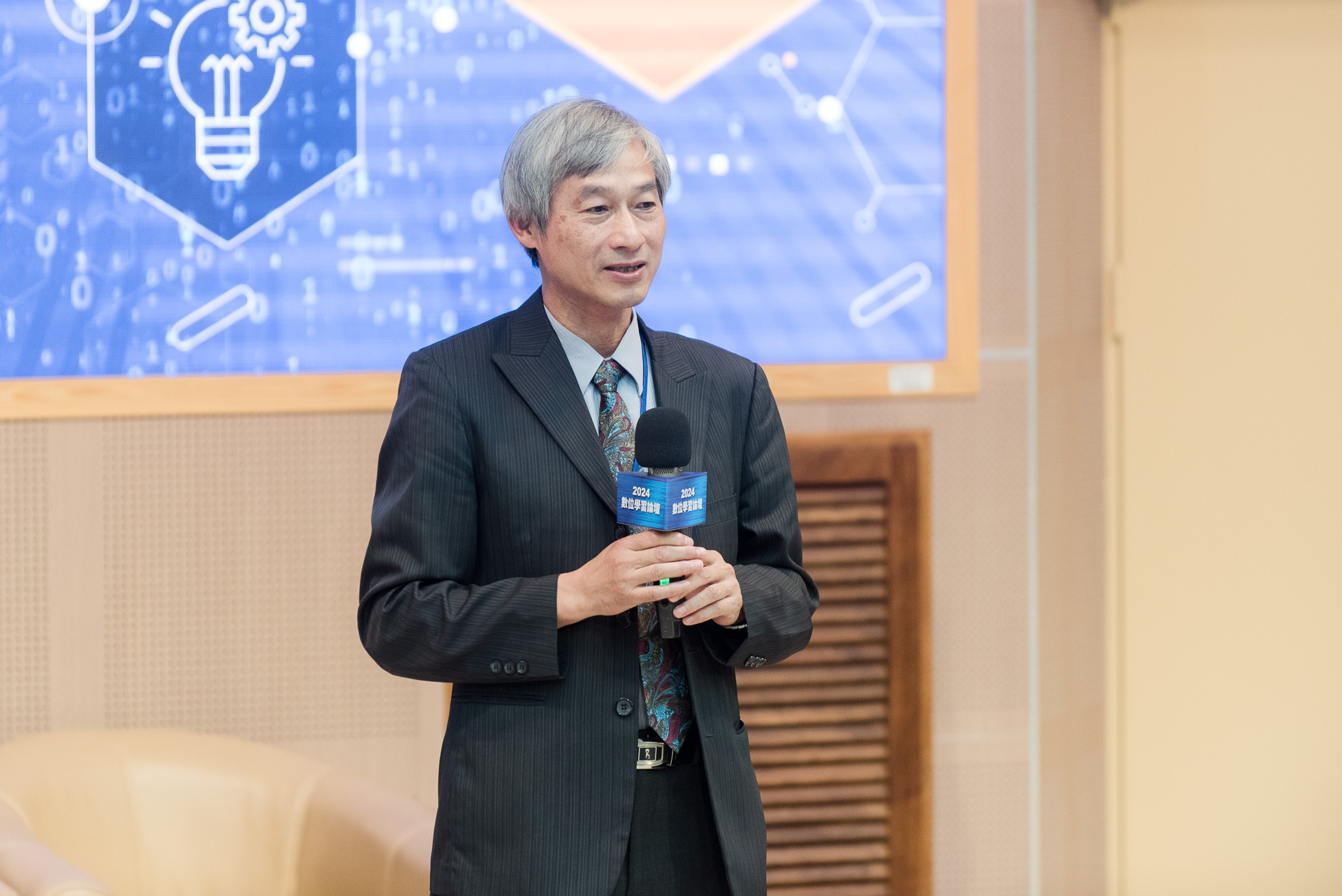
Mu-Chun Suh, Dean of the College of Electrical Engineering and Computer Science at National Central University, serves as the co-project leader for the Ministry of Education's "Second Phase Digital Learning Cultivation Project." He believes that AI presents a double-edged sword in the field of education and emphasizes the importance of early adaptation, aiming to make it a key driving force for educational transformation and the cultivation of new-generation talents.
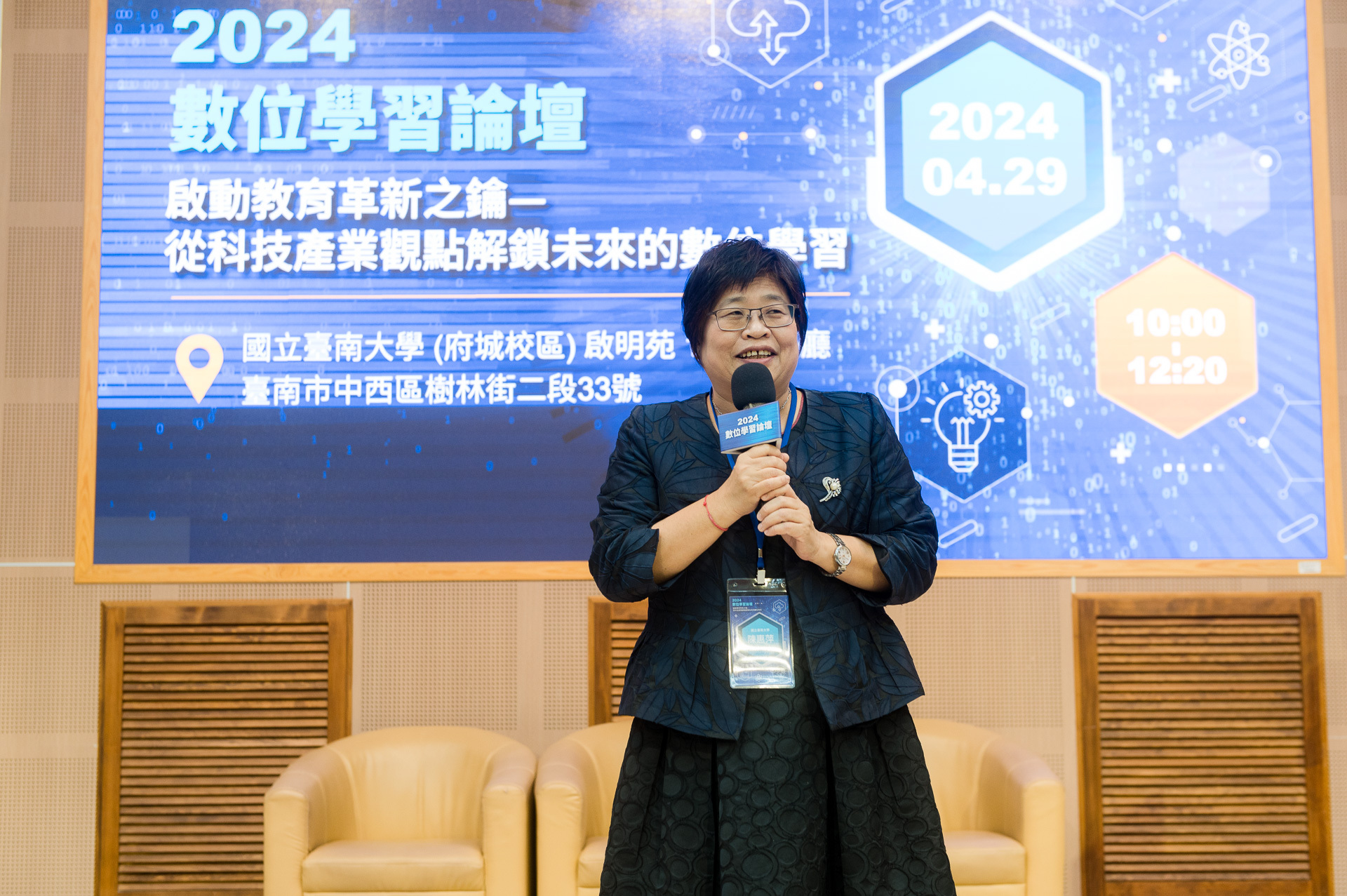
Hui-Ping Chen, President of National University of Tainan, hopes that all deans and first-level supervisors within the university can engage in AI learning, thereby driving continuous improvement in teaching methods and tools for primary, secondary, and early childhood education.
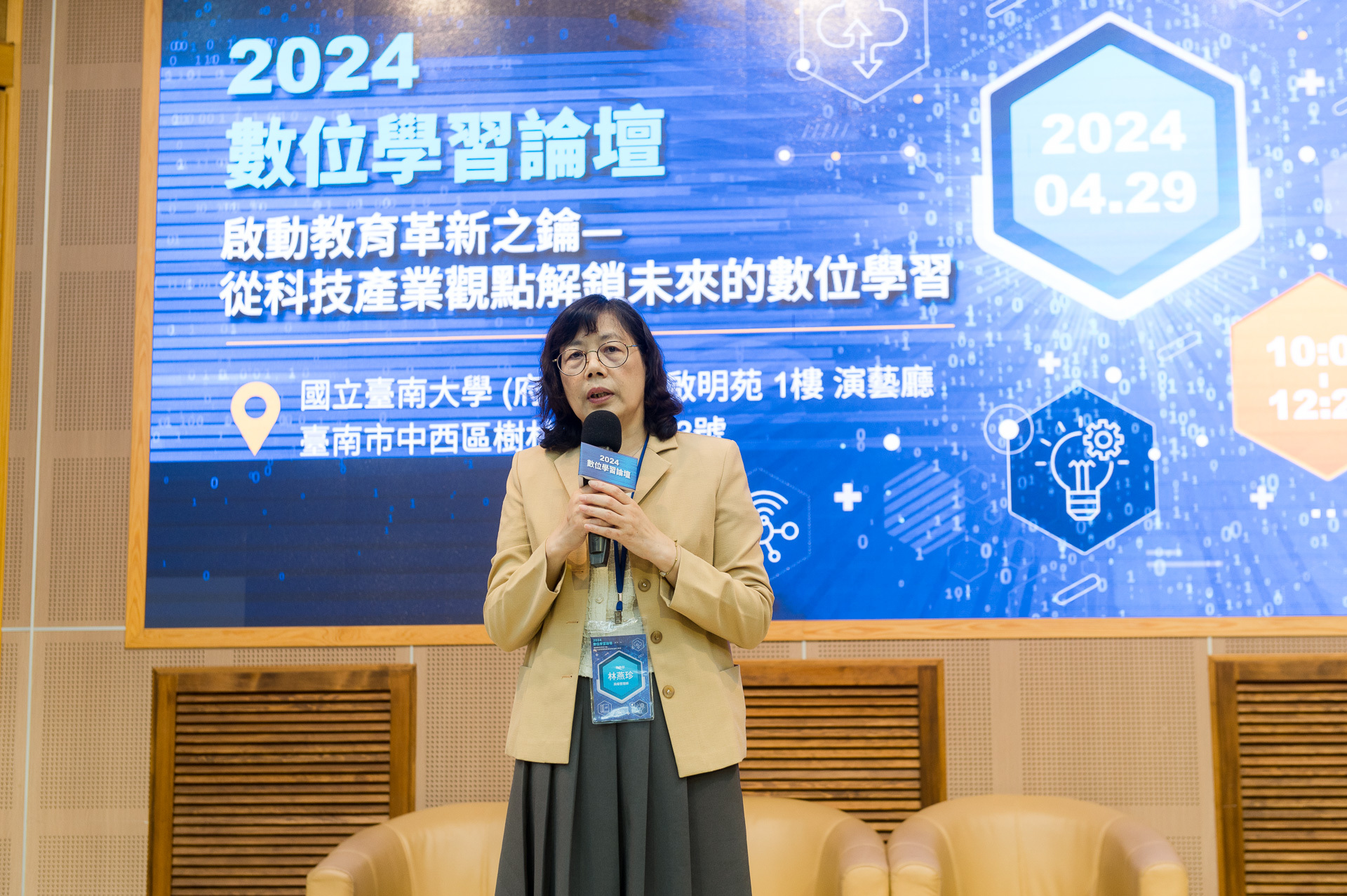
Yen-Chen Lin, Senior Manager of the Information and Technology Education Division at the Ministry of Education, reiterated that the Ministry of Education has been promoting digital learning and distance education for many years, which has had a positive impact on schools.
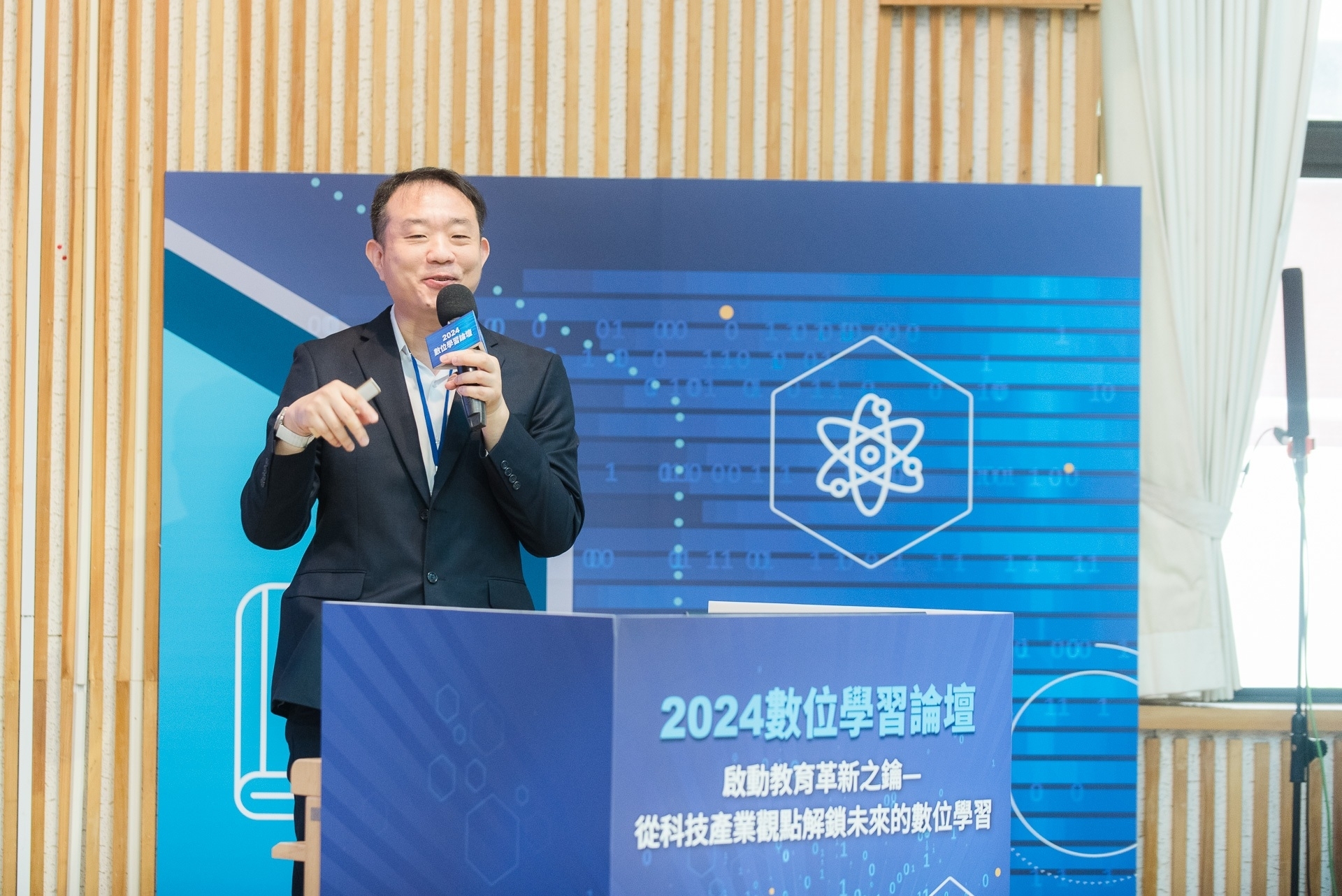
One of the keynote speeches at the "2024 Digital Learning Forum" was delivered by Dr. Yong-Hui Lai, Director of the Artificial Intelligence Research Institute at Foxconn Technology Group.
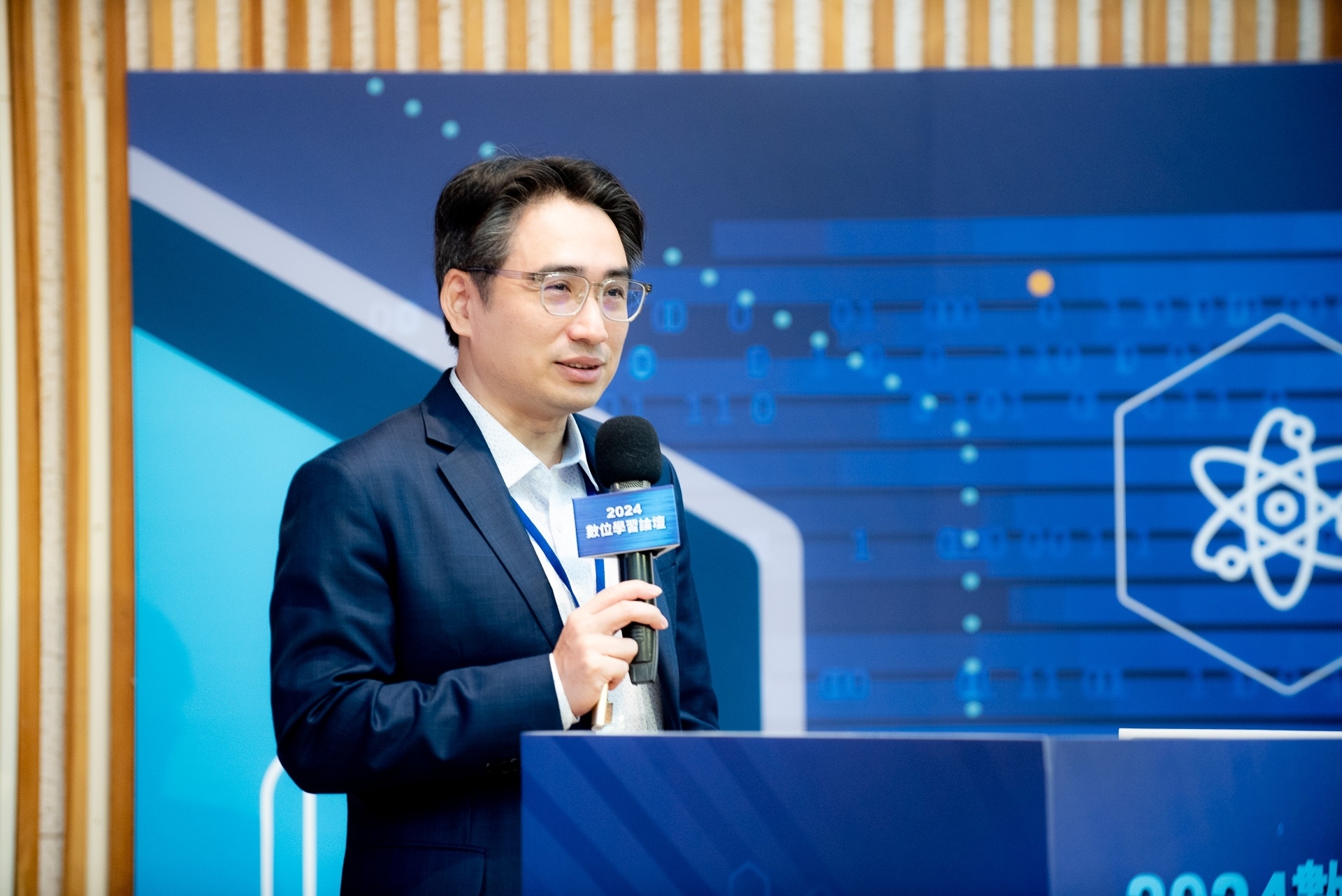
Another keynote speech at the "2024 Digital Learning Forum" was delivered by Kai-Long Hua, Chief Technology Officer of Microsoft Taiwan.
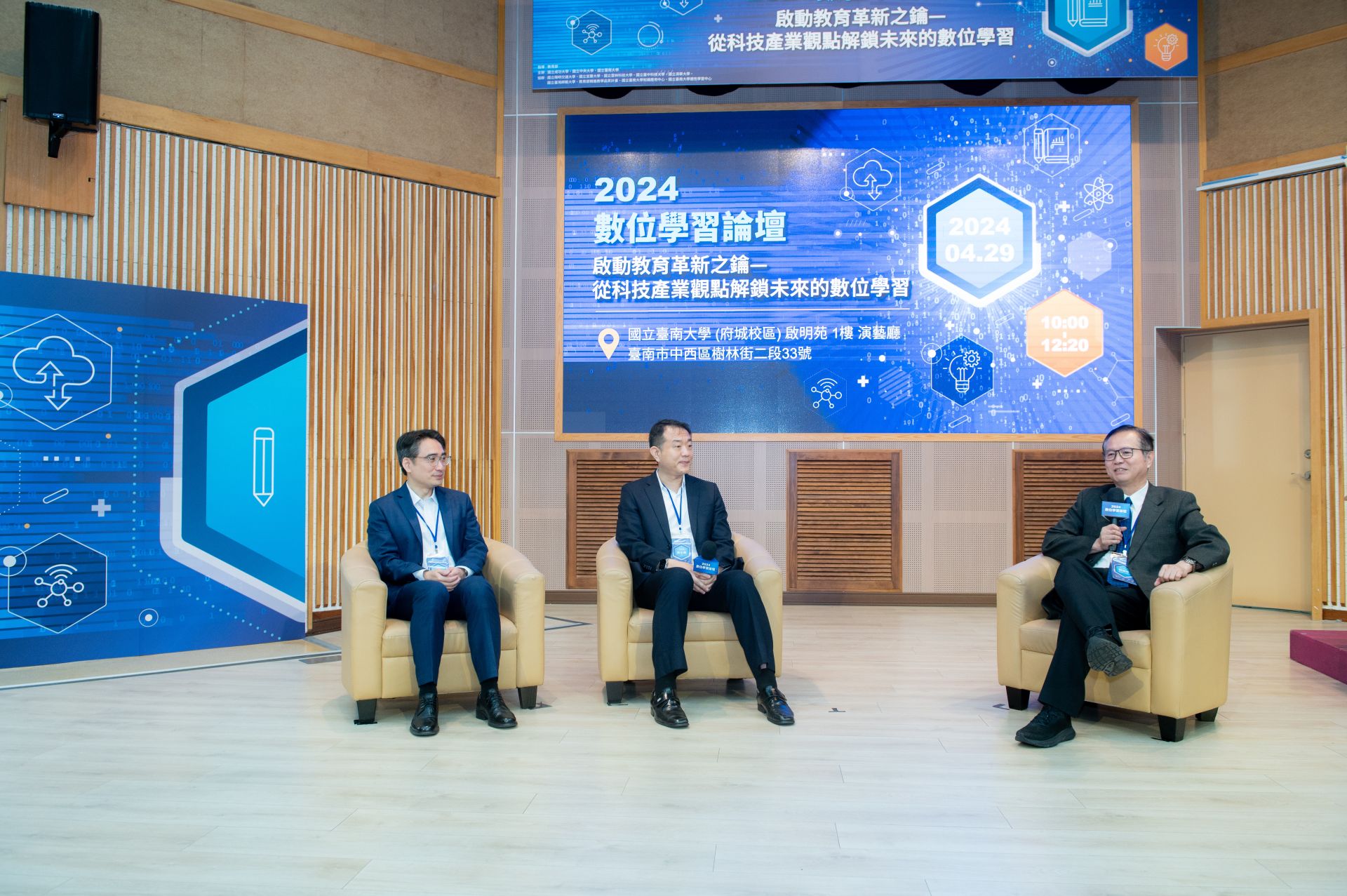
The panel discussion of the "2024 Digital Learning Forum" was moderated by Professor and Research Director Zhen-Hua Yang (right) from the Department of Computer Science and Information Engineering at National Central University. Joining the discussion were Kai-Long Hua (left), Chief Technology Officer of Microsoft Taiwan, and Yong-Hui Lai (center), Director of the Institute for Artificial Intelligence at Foxconn Research Institute.
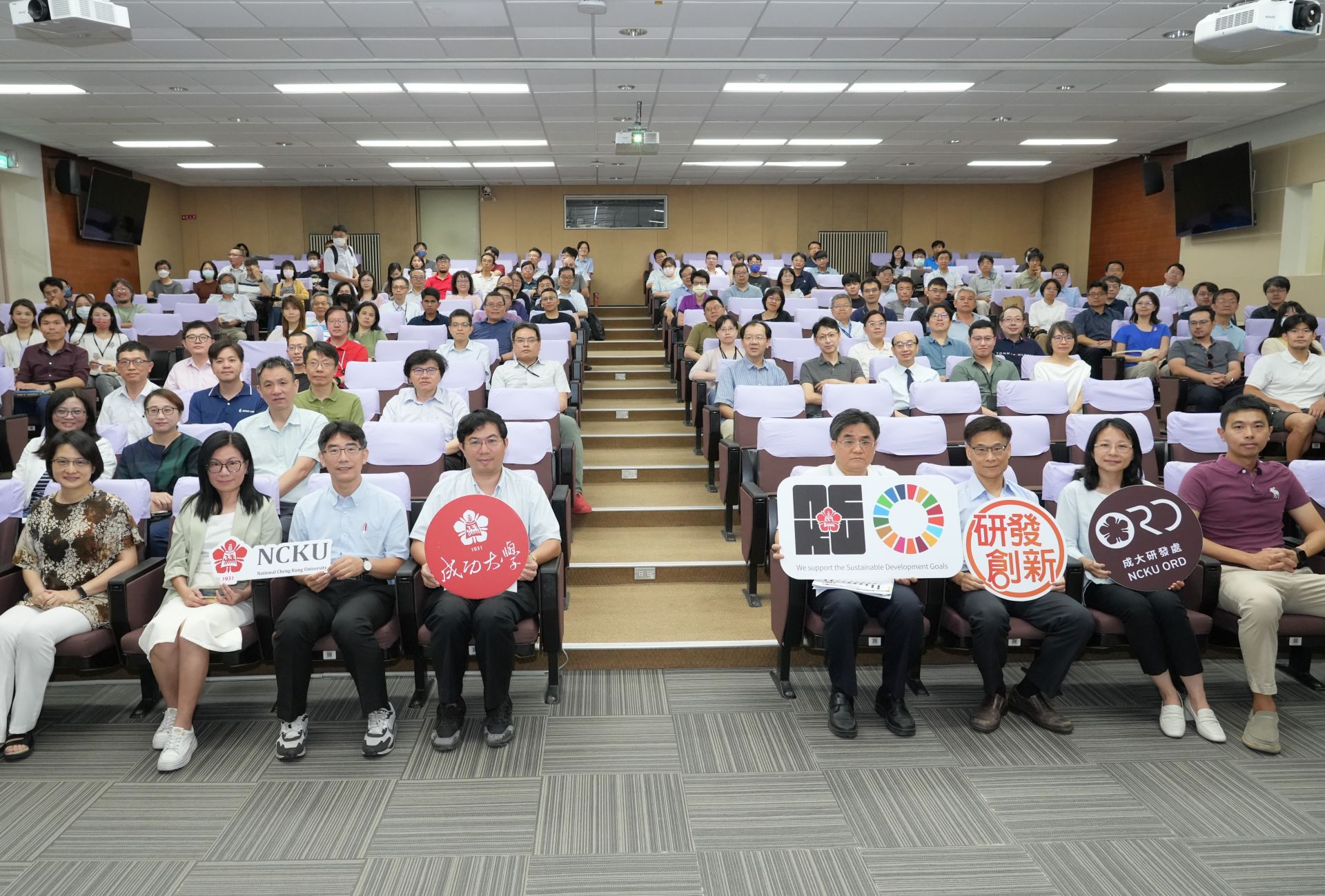
SDG92025 R&D Project Kickoff Meeting: Advancing Internationalization and Sustainability in Parallel
View more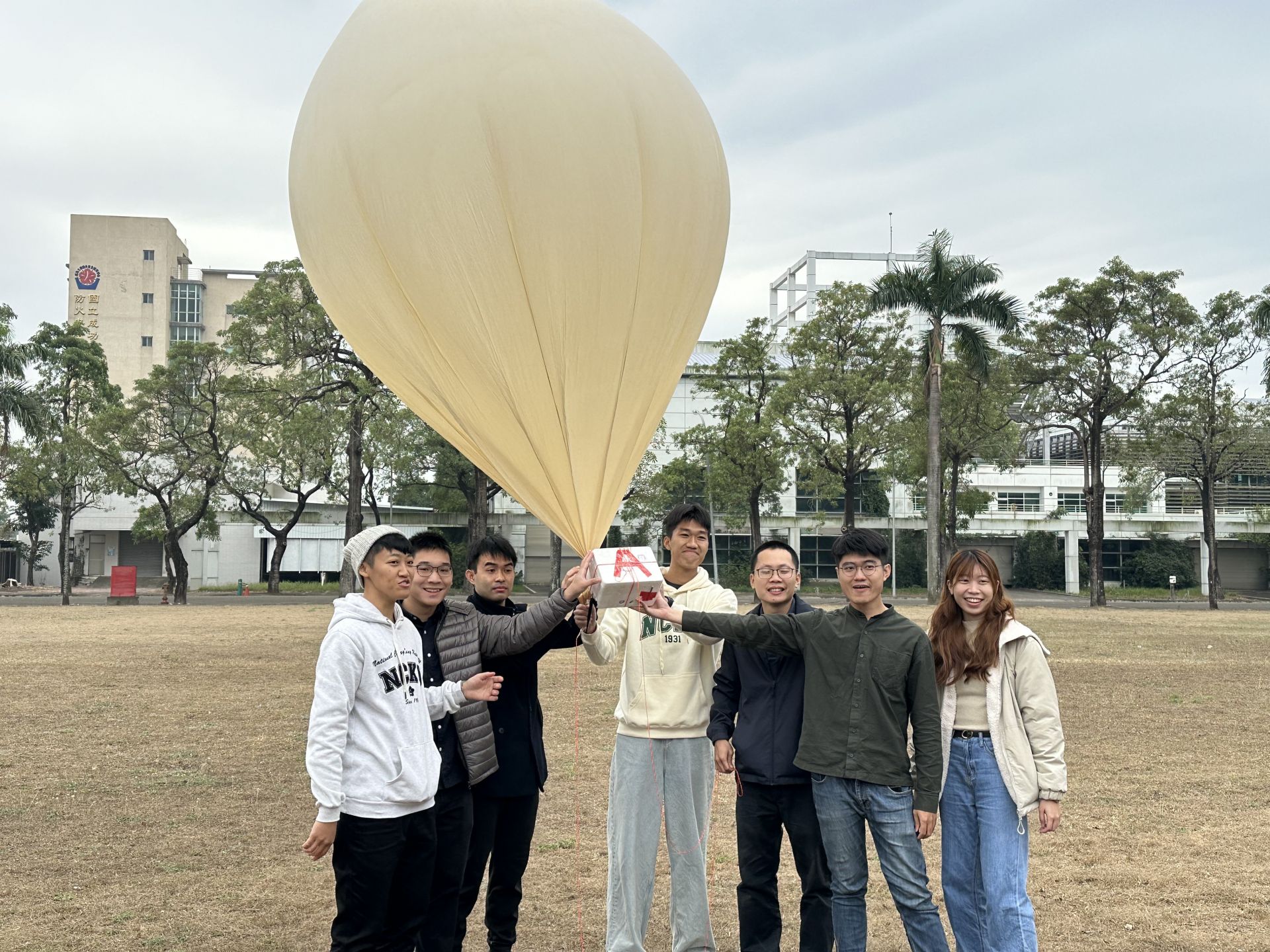
SDG9NCKU's Institute of Space Systems Engineering releases stratospheric weather balloons, marking the initial phase of space missio
View more




















